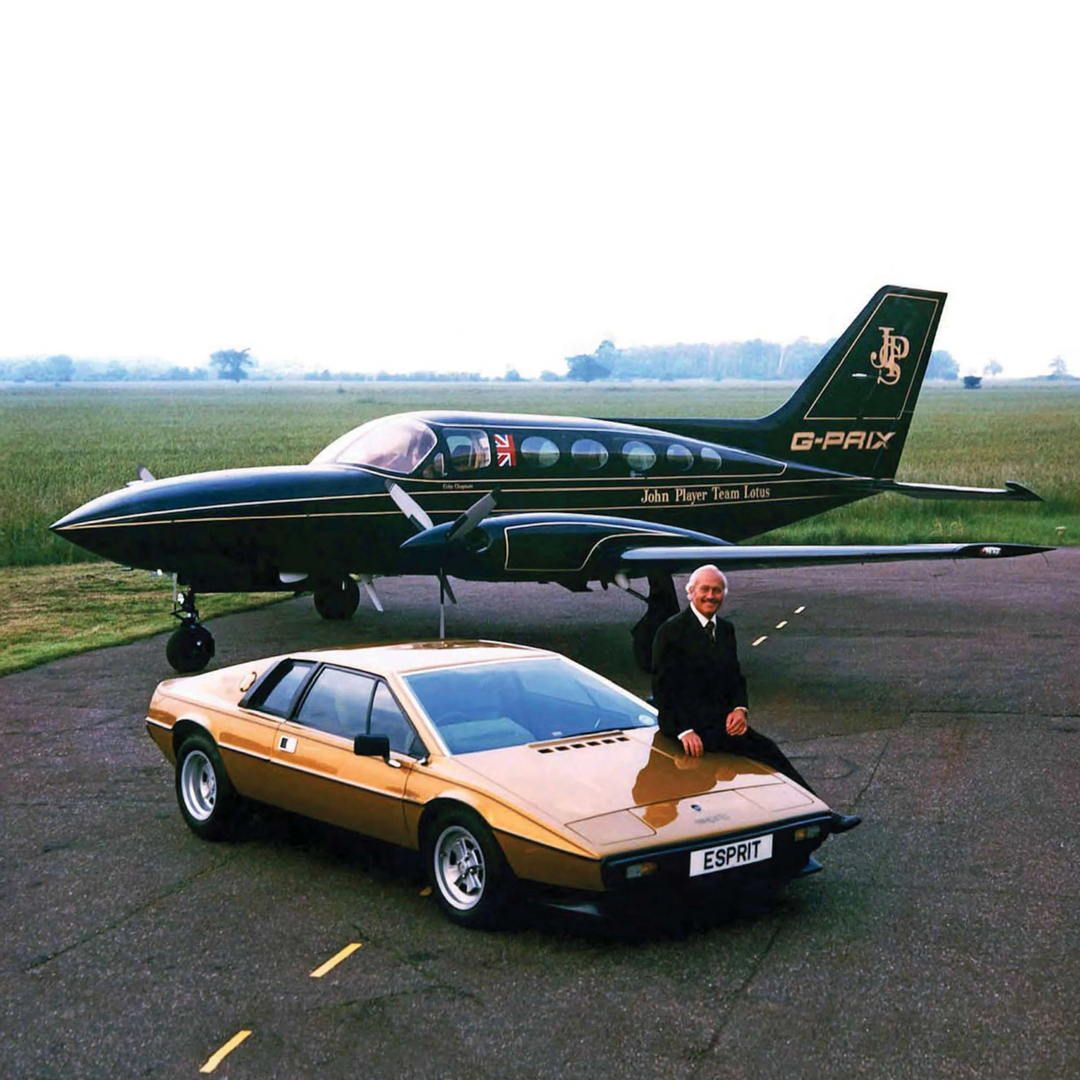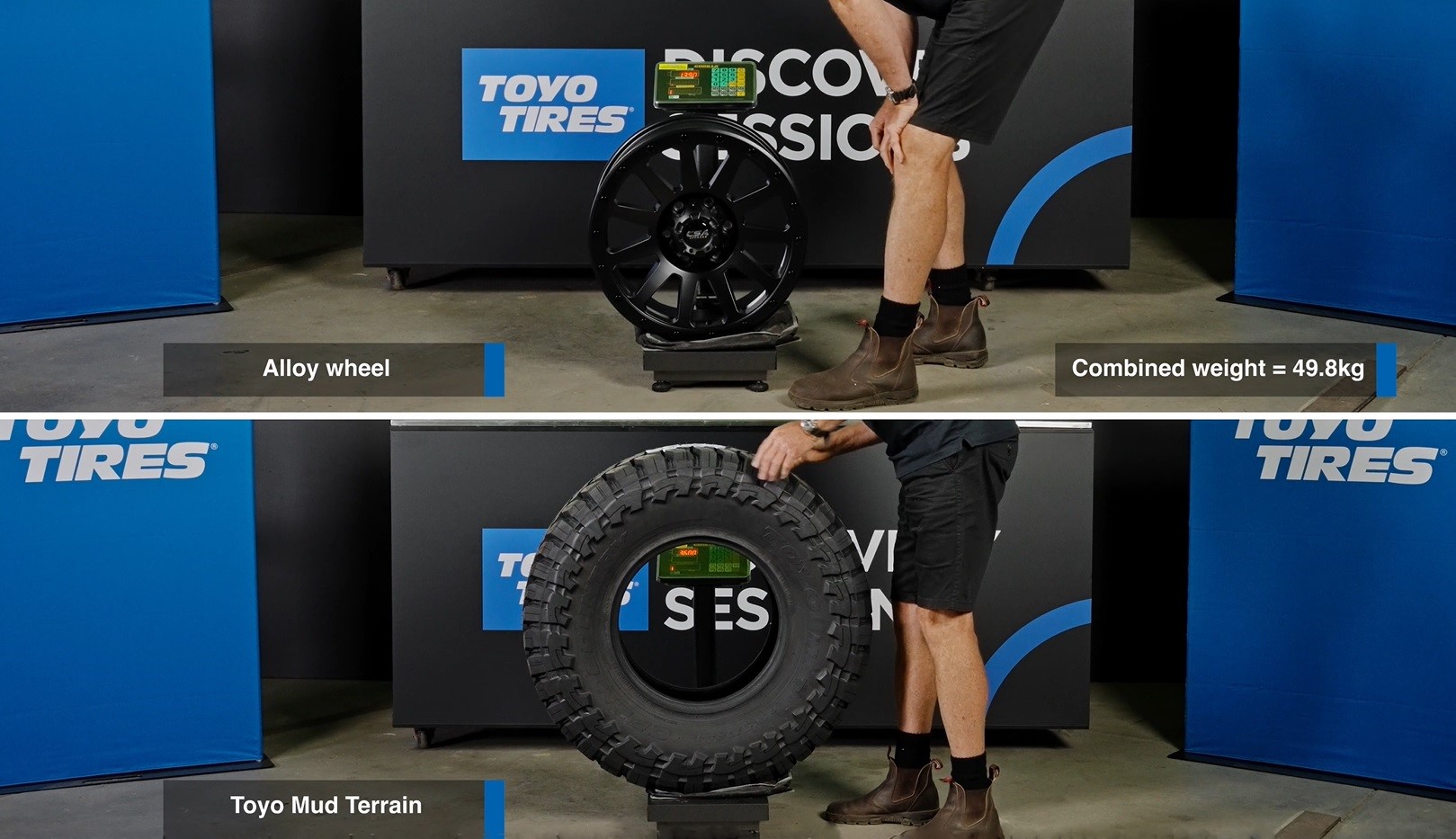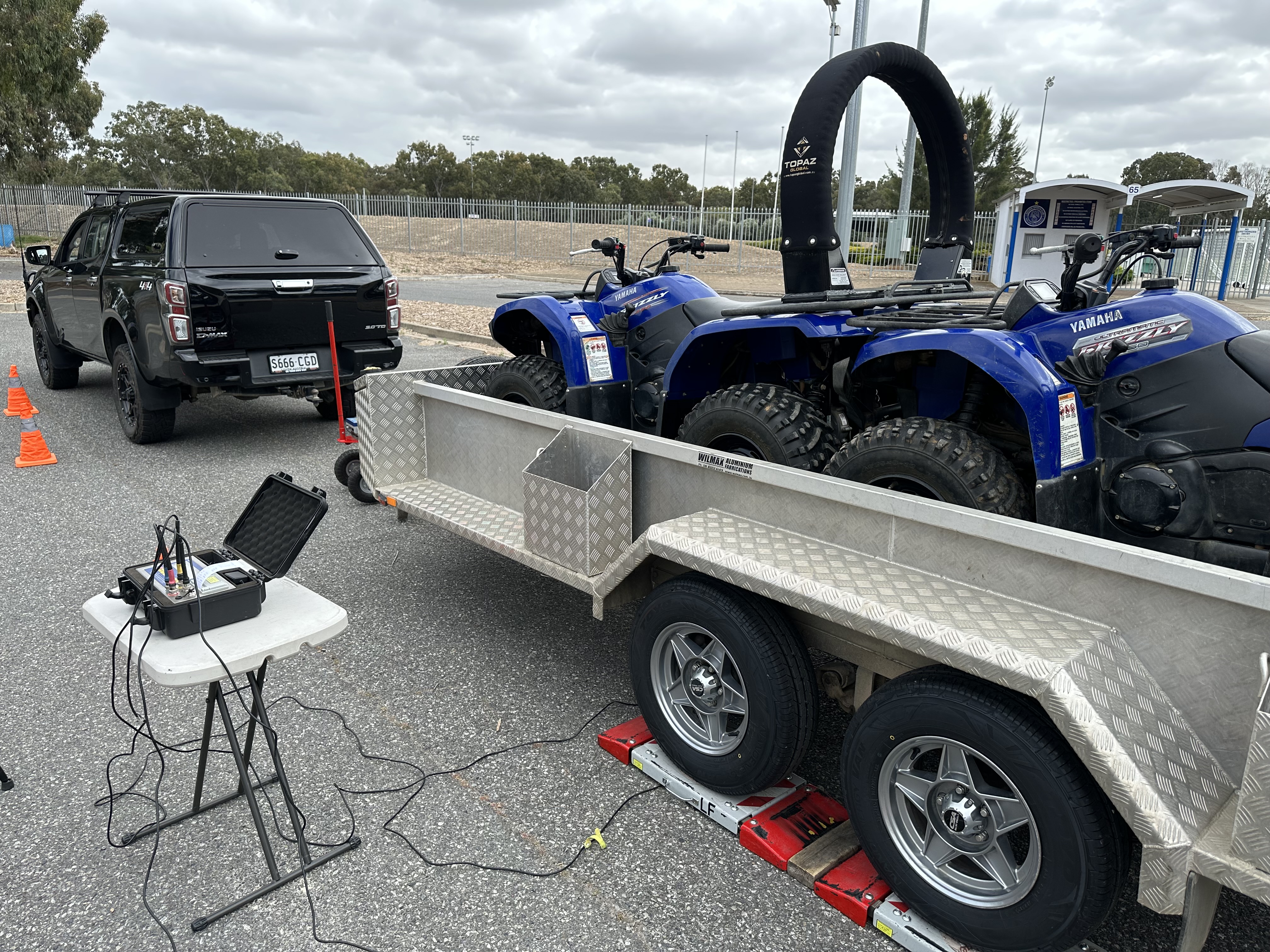I’ve always seen weight as the enemy. My dad once told me you don’t need a big engine to be quick—just be light. The legendary Colin Chapman of Lotus believed the same, and it still rings true in the world of 4WDing. While 4WDs are heavier by nature, saving a few kilos here and there helps stay under GVM, improves predictability, and makes for a safer drive.

So yes, this one’s in favour of alloy wheels. Over fifty years playing with 4WDs has shown me what steel wheels do to vehicle dynamics. In a recent Toyo Discovery Session, I weighed the spare on my D-MAX—an OEM steel wheel and highway terrain tyre combo—at 31.2kg. The equivalent alloy combo came in at 26.5kg. That’s a saving of 4.7kg per corner—18.8kg across the vehicle. Not earth-shattering, but when towing near the legal 3,500kg limit, it could mean the difference between taking an extra kid or a carton of beer.
As we found in our weigh-in episode with On-Site Weighbridge in Adelaide, around 80–90% of tow rigs on Aussie roads are overweight. That’s a ticking time bomb.
Another key reason I favour alloys is unsprung mass—the weight not supported by the suspension (think wheels, tyres, brakes). The more unsprung mass, the harder it is for the shocks to do their job—especially on corrugations. If the dampers can’t keep up, you lose control and comfort.
You can soften the blow with my “20% Rule”: drop your tyre pressure by 20% from your highway setting when heading off-road. It gives the sidewall some flex and helps the suspension out. Running in high-range 4WD on dirt also helps reduce harshness, especially through corners.
My towing limit is 2,700kg—realistic for most dual-cabs and wagons. To handle that load, I use proper LT-construction tyres like the Toyo Open Country A/T III in LT265/65R18. That combo weighed in at:
- 40.35kg (with steel wheel)
- 37.65kg (with alloy wheel)
Compared to stock:
- The steel pairing is +9.05kg
- The alloy pairing is +11.15kg
Bigger tyres mean more weight. Steel wheels add even more. That extra mass puts strain on your suspension and affects handling. So if I’m going for a heavier tyre, I offset it by choosing a lighter wheel—and make sure the suspension is up to the task.
For fun, I tested a monster 35” inch Toyo Open Country M/T:
- 52.4kg (steel wheel)
- 49.8kg (alloy wheel)
That’s over 20kg more than stock!
Sure, some will argue steel wheels are stronger and repairable with a hammer. Fair enough—but most of us aren’t aiming for boulders. That kind of punishment is best left to the comp trucks. For everyday off-roading, alloy gives better handling, less weight, and fewer headaches.
Discovery Sessions may change how you think about the rubber beneath your rig.
Want to learn more? Watch the video below or Sign up here to our Online Discovery Sessions, to become a Toyo certified dealership today!

